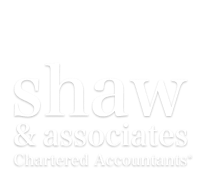Accounting For Non-Profits
July 31st, 2021
Posted in: Tips & Insights

The key word for accounting for non-profit organizations is accountability. Non-profits need to be very transparent with how the money they receive from donors and contributors is spent, because people are giving them money for very specific purposes, and they want to see that the money is going to those causes.
Per Jitasagroup.com, “Nonprofit accounting is the unique process by which nonprofits plan, record, and report upon their finances. While for-profits primarily focus on earning a profit, nonprofits focus more on the accountability aspect of accounting. They follow a specific set of rules and procedures that help them stay accountable to their donors and contributors.”
No Profits – It’s Right In The Name
Another critical aspect of non-profit accounting is that any extra money goes back into the kitty to be used for the stated causes of the non-profit. All the money is to be used to fund the reason the non-profit exists in the first place, not to be given to executives or shareholders. However, a special point needs to be made: non-profits do have overhead like office rents, employee salaries, and fundraising costs. These are separate from any profits that need to be rolled back into the main activity of the non-profit.
Says Jitasagroup.com, “Another aspect of nonprofit accounting that helps organizations stay accountable to their finances is the nondistribution constraint. This is a vital aspect of accounting that helps define nonprofits. Unlike for-profits, nonprofits are required not to distribute their net earnings to the leaders at the organization.”
It’s All About Controls
Even more than for-profit companies, non-profits need to have ironclad internal controls because of the risk of losing all credibility if fraudulent or self-serving actions are discovered. Internal controls can consist of checks and balances like division of duties (for example, one person creates the cheque run, a different person checks and signs the cheques), or doing frequent inventory checks to make sure people are not treating the non-profit office as their personal stationery store.
Again per Jitasagroup.com:
“Internal controls not only limit cases of fraud, but often aid in catching errors. Even if your nonprofit consists of only two employees, there should still be a “checks and balances” system in place. No matter how big or small nonprofits are, internal controls are essential for effective nonprofit accounting.
Small nonprofits especially struggle with implementing internal controls, but there are some specific guidelines you can follow such as:
Share financial duties. For instance, if your bookkeeper records all incoming revenue for your organization, someone else should be the one to approve write-offs. This creates a system of checks and balances between roles at the organization.
Instill security policies. Nonprofit cybersecurity can easily become a major risk to organizations, especially when you handle sensitive transactional information. Implement specific policies at your organization for the handling of this data.
Take inventory of fixed assets. Some items are easily taken home from the office and forgotten about. Take regular inventory of the computers, cell phones, and other items that you allow your organization’s staff members to work with.”
Reports And Audits
Non-profits need to create regular, comprehensive reports on their income, costs, and activities to show the world that they are not pulling any fast ones, and show everyone where the money is actually going. A legitimate non-profit will also welcome frequent audits for the same reason—we have nothing to hide and welcome showing the world what we’re doing. Shaw & Associates would love to help and guide you on your journey of making the world a better place.
For more information, here's an article on not-for-profit organizations in Canada. And this video provides information on types of accounting basics for non-profit organizations.
Contact Shaw & Associates Chartered Accountants for accounting help you can count on. One complimentary meeting with us will put you and your business on a more profitable and positive path.

